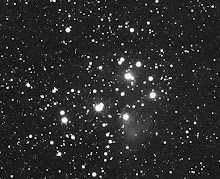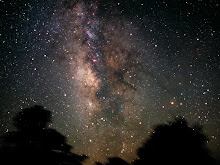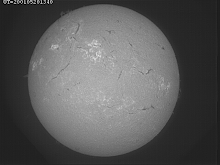In secular likelihood, it is worth cultivating the concept of God because it appears to be an inevitable activity of human beings anyway, Those familiar with wildlife say the animals live close to prayer all the time, and the nearest more substantial concept is vigilance. Just where one draws the line between God and vigilance is often a matter of opinion, but seems to be close to the distinction between probabilities and molecular structures made of atoms.
Probabilities such as those of chance, gambling, gamboling, hazarding and others are intrinsically risky business. Even so, probability has paid off in insurance, which pools resources on the basis of probability of risk, and pays moneys to those who suffer loss as a result of unpredictable (or unpredicted) catastrophes. Because of that, it is difficult to protect insurance from evil gamblers, but important to do so because nervous angels profit much more by having good insurance.
In nature the distinctions had to be between self and others such as enemies, prey, predators, friends, tribe, herd and family - all difficult to distinguish in nature, although any skill at divination was helpful in survival.
Early life forms on Earth were little more than sludge or slime consisting of extensive molecular and cellular masses without much organization. Such masses did create environments, mainly smelly and tainted with refuse, offal and excreta. Even so, if a place smelled more of droppings from one's own species, it was probably more likely to be a safer than more dangerous place to be. As with procreation in any organism, the beginning of God was a smelly business. God, at first tentative, primitive, and only sporadically accessible, was with life perhaps billions of years ago.
Later, by inventing houses which could be closed against pests, marauding beasts, enemies and disease, they learned to cultivate godlike qualities that gave the household protection previously unattainable in trees and caves. Life became holy, at least for those who took care to cultivate holiness.
The cultivation of the spirit became important. Those who were good at it were quickly drawn into serving the entire group, which led to modern organization.
However much organization changes as a result of attaining the ancient goal of the Moon, human civilization will not abandon its most successful institutions. At the same time, liberty and freedom have taken on more extensive dimensions - consider the driving range of a new automobile or modern passenger airplane or ship.
In the same way, human civilization will not abandon all of religion, families,
democracy, communications, transportation, government, medicine or education - probably not ever. On the other hand, all are going through extensive changes for the simple but slow long-term reason that the past several thousand years were dedicated intensively to reaching the Moon. Nobody knew exactly what would be discovered. It might have been anticipated that what would be discovered had been familiar for hundreds of millions of years already.
But it was not, and toward the end of the race, advanced speculation seemed to indicate the world would be inundated by hungry space aliens bent on consuming human beings as food; OR, human beings would begin to engage in mass migrations to the stars where they would form colonies: OR there would be monstrous wars with each nation raining sophisticated weapons of mass destruction from space on each other's sacred cities and houses; or other highly imaginative prognostications. Few were content with the tranquil concept which was so close to the truth that was observed by astronauts and astrobots to the other planets of the solar system.
Almost more surprising is the vast utility of earth orbit. Communications, space tourism, weather surveillance, soil, mineral and crop surveys, temperature maps, wildlife observation, space astronomy and many other new, valuable purposes have emerged for putting specially designed equipment into orbit.
It's not worth spending much time on the question of which came first, life or god. The question is exactly like father's question of which came first, the chicken or the egg? Far more productive is the time spent on comprehending and understanding what has been attained, what were the successes of the past five or six or ten thousand years which led to designs and practices that will be perpetuated, and what were the errors that require careful, patient correction of the kind that should have
been taken long ago.
The early pyramid builders did construct manifest displays of the attainment of lifting heavy objects high above the Earth, and the total gravitational energy, as one measures it in, say, foot-pounds, is approximately equivalent to the energy that was eventually required to lift a man to the Moon. The energy required was supplied by human beings, their numbers not remembered, but they ate food. So much food was required to lift a block a certain distance. Similarly, other amounts of food were required to lift the same size block other distances. The food was fish and grains. Fish had the advantage that catching a live fish meant fighting with the fish's energy. Fish could jump so far above the water. People could jump above the Earth. A concept of biological energy existed. Construction of the pyramids allowed a visible manifestation of that kind of energy to be manifest during the
passage of such time as would be required for human beings to jump to the Moon.
Even so, an error exists. It is now known that a certain physical relationship exists between mass and energy. According to the Einstein equation, energy and mass have a relationship mathematically describable as Energy = Mass * c *c, where c is the speed of light. Earth pyramid builders had no rational idea of the speed of light, or that it was not infinite.
It is worth pausing now, having attained the Moon, to survey history for the existence of errors such as these, and inquire whether they are causing difficult in the present day or anticipated future. The sciences, mathematics, agriculture, medicine and many other fields are rich with powerful laws for the Judgment, but it does not require war any more. Pausing, perhaps, for centuries. Sometimes the dynasties of Egypt went into hiatus for such long periods of time. Earth could afford to let frantically compulsive, high-powered profit-driven industrial market design and manufacturing to lapse to the essentials of food, shelter and other vital productions. Just what those will be would be determined when, as the superfluous production is allowed to collapse, the essential necessities begin to show the core toughness of the will to live of the people, only this time, taking care to guard against making conflict of it.
Instead, the blessings of liberty must be allowed to flourish, and those of grace and justice as well. It is time to take somewhat more risk in extending trust to other nations and peoples, than was the custom during the centuries before footsteps on the Moon became real. Taking time to wade through years of negotiation to reach a point recognizable to both sides is possible now. Centuries lie before humankind as more or less determinable futures in the millions of years of unknown destiny. By now, it is known that enough air is likely to remain on Earth for, not mere millions of years, but probably hundreds of millions of years.
We might even get some sleep without worrying about imaginary futures, and cultivate our faith in real futures.
Subscribe to:
Post Comments (Atom)








No comments:
Post a Comment